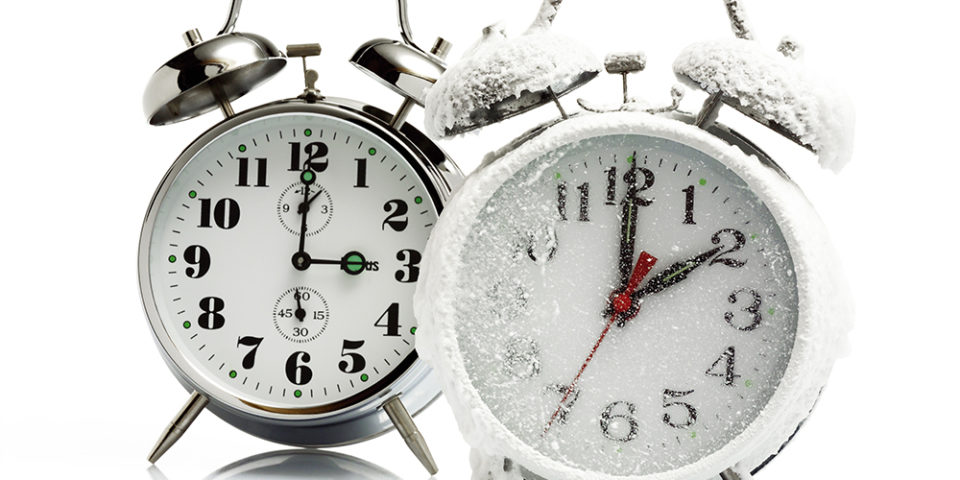Daylight saving time vs. standard time: What’s better for your health?
Every time the clocks spring forward or fall back, many of us bemoan the biannual ritual and long for a fixed year-round time. But which way should we go? Sleep medicine specialist Antoinette Rutherford, MD, explained how daylight-saving time and standard time impact our health.
When it comes to health, standard time wins
Yes, we do get an extra hour of sunlight in the evening with daylight saving time which can mean a brighter commute home in the evening. But when it comes to health, Dr. Rutherford said standard time is the better option.
“From a circadian rhythm standpoint, using standard time would be optimal,” she said. “If we stayed on daylight saving time, we would be in permanent jetlag.”
Standard time means more light in the morning and earlier darkness at night, so it’s more aligned with our internal clocks that follow the rising and setting of the sun. It’s easier to fall asleep when it’s dark outside and wake up when it’s light. This is important because the body’s sleep and wake cycle impacts all biological processes including appetite, insulin secretion, bowel movements, temperature, mood and more.
“Whether the body would adjust, it’s hard to say because we’ve never stayed on it permanently,” she added. “But the limited amount of research we have shows it’s better from a sleep standpoint for us to stay on standard time.”
The biggest health benefit, however, would come from stopping the seasonal time change. Studies have shown the change to daylight saving time has resulted in more cardiovascular events, strokes and accidents.
What can you do to make the time change easier?
“It usually takes five to seven days for your body to adjust to the time change,” Dr. Rutherford said. She offered these tips to make the process easier:
Transition gradually. When you’re falling back, get up at your regular time, but try going to bed a little earlier, maybe 10–15 minutes, to compensate. When you spring forward, go to sleep 15 minutes early for a couple of days leading up to the time change, then 30 minutes early for a couple of days.
Avoid consuming extra caffeine. You might be able to fall asleep, but too much caffeine can impact your ability to get good quality sleep.
Avoid naps. Taking a nap will detract from your drive to want to fall asleep.
But isn’t it healthy to take naps?
“A short nap is okay, but anything longer than 30 or 45 minutes can interfere with your overall circadian rhythm, making it harder to fall asleep later,” Dr. Rutherford said.
How much how sleep should people be getting?
Many of us are sleep deprived, including children. Here’s the breakdown of how much sleep, on average, is recommended by age:
- Adults 18 to 66: 8–9 hours of sleep.
- People over age 65: 7–8 hours of sleep
- Younger kids: 9–10 hours of sleep
- Teens: 8–10 hours of sleep
For more tips on adjusting to the time change and getting quality sleep, check out our post on tips for a healthier spring forward or fall back.
Find the care you need, close to home
Our primary care physicians provide well visits and everyday care when you need it with compassion and expertise.
Find Primary Care Near You

